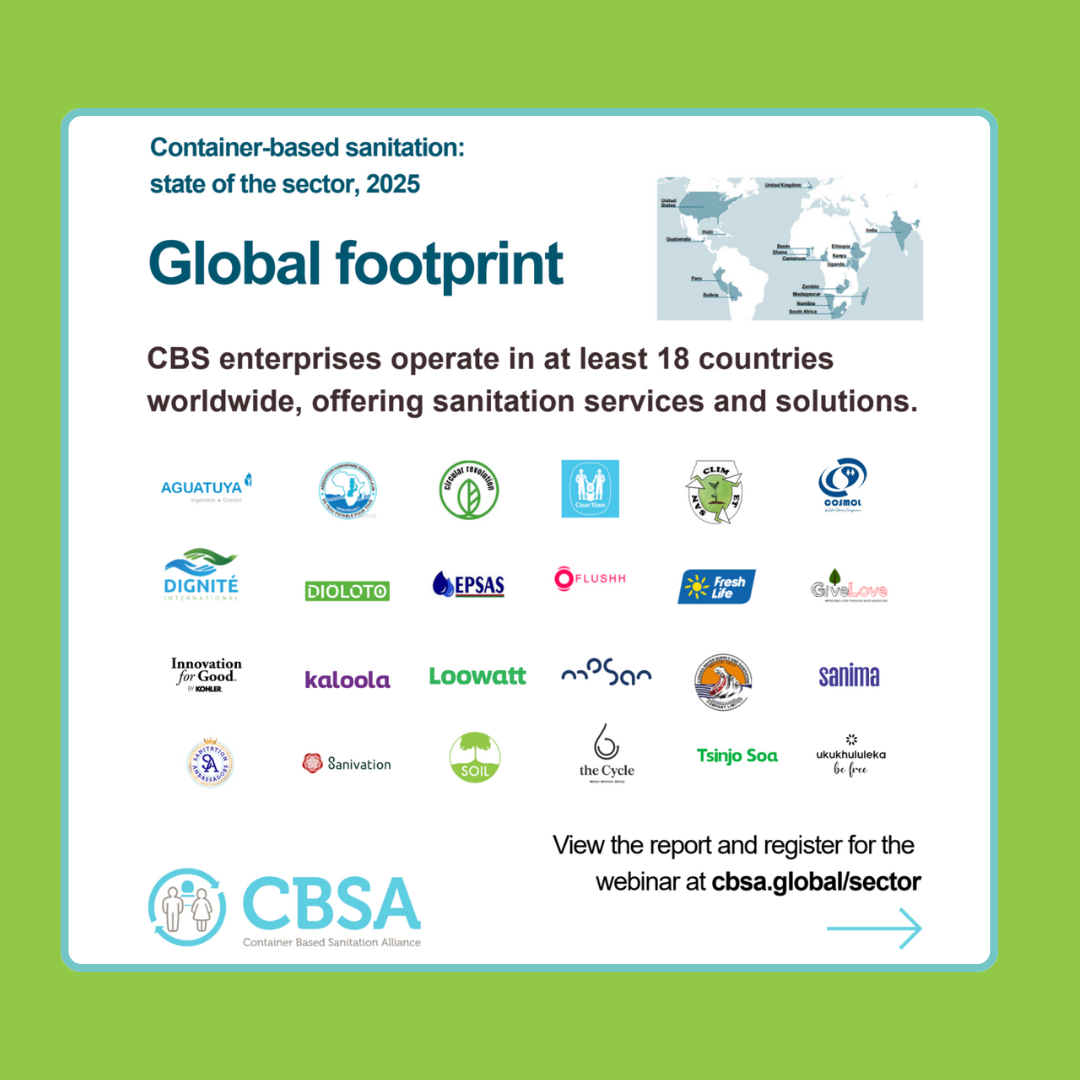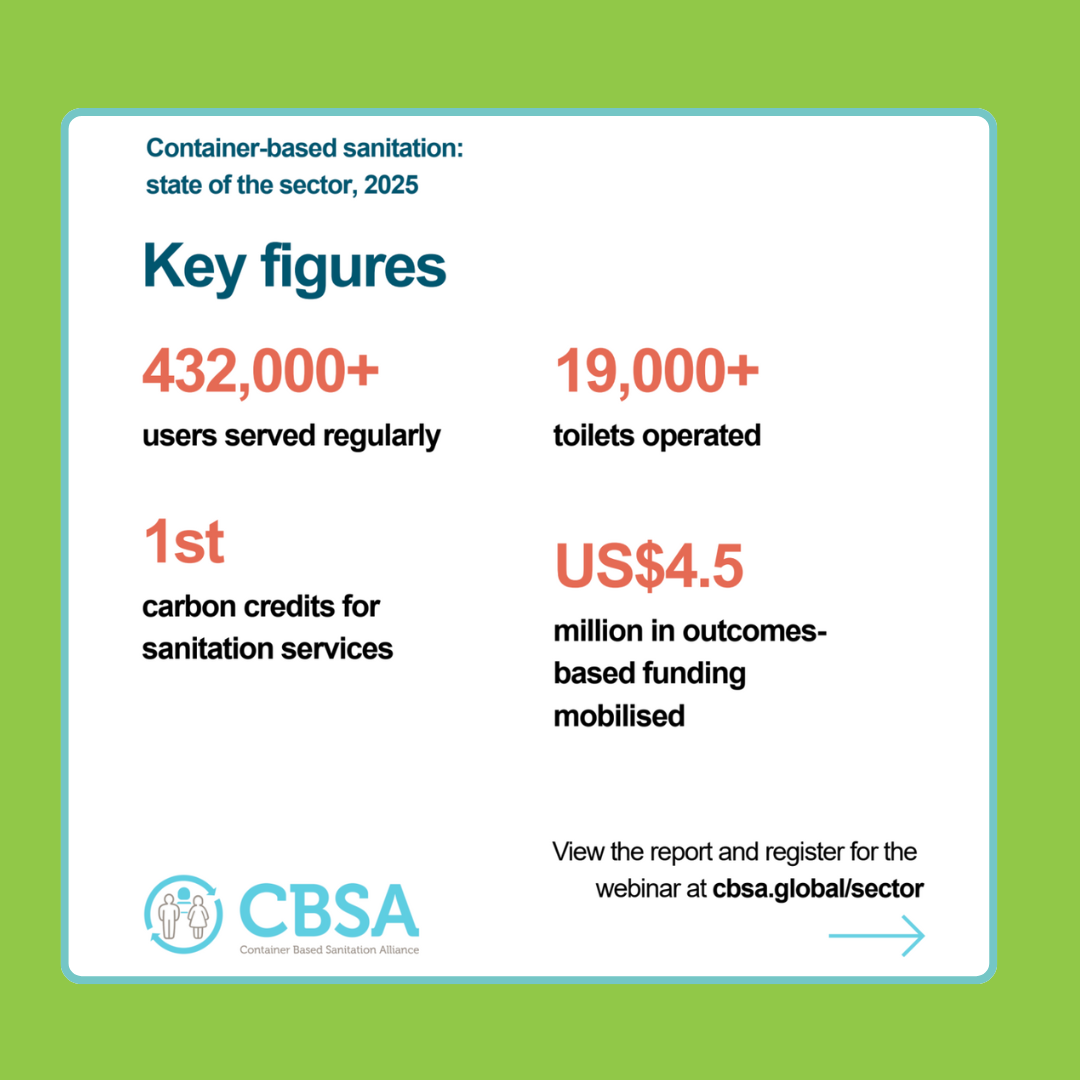Container Based Sanitation Alliance Launches 2025 State of the Sector Report
Almost twenty years ago, SOIL asked a question: Could affordable, safe and dignified sanitation services be delivered in dense, coastal urban neighborhoods without sewer infrastructure — and could the waste collected from these services be transformed into compost?
(Spoiler alert: the answer is yes.)
What began as an innovative response to a local need in Cap-Haïtien is now officially recognized as part of the standard “menu” of citywide inclusive sanitation approaches endorsed by international agencies and governments. Today, container-based sanitation (CBS) is not just possible — it’s practical, scalable, and essential.
Last month, the Container Based Sanitation Alliance (CBSA) released their 2025 State of the Sector Report, a global snapshot of how the CBS service model has matured and spread across new regions.
Highlights from the 2025 State of the Sector Report
CBS is now operating in 18 countries, serving more than 430,000 people worldwide. With 1 billion people living in informal settlements — and 700 million still lacking access to safe sanitation — CBS is bridging the gap between no sanitation options and the aspiration of centralized systems (bonus points when those systems are ecologically sound).

And it isn’t just NGOs or social enterprises joining the CBS bandwagon. In El Alto, Bolivia and Cape Town, South Africa, CBS has been fully adopted as a public service, with municipalities directly funding and managing costs like they do with sewers and septic tanks. These examples show a potential for what’s possible when governments recognize sanitation as a public responsibility, communities mobilize to demand their rights to basic services, and innovative rapidly-deployable sanitation technologies exist.
The sector is also breaking new ground in financing. Between SOIL in Haiti and Fresh Life in Kenya, CBS providers have mobilized $4.5 million in outcome-based funding — proving that safe sanitation can be financed, measured, and scaled across global cities.

Milestones for CBS in 2024:
- In 2024, CBS providers removed more than 25,000 tonnes of waste from the environment, preventing contamination and protecting health.
- Research in Cap-Haïtien shows CBS dramatically improves quality of life, particularly in dignity, safety, and comfort. Many households that eventually leave SOIL’s service move “up the sanitation ladder,” doubling private toilet ownership and reducing open defecation in some communities by nearly a third.
- CBS is increasingly recognized as a climate-smart solution, reducing greenhouse gas emissions by up to 93% compared to pits and septic tanks, while also conserving water.
The next stage of progress for the sector depends on public leadership and user-centered design. CBS must continue to be treated as a standard sanitation approach by public health administrators, and integrated into policy, planning, and budgets. Providers must also continue to co-create their services with user input, working to improve the design sanitation solutions that reflect household aspirations and ensure long-term uptake.
CBS may not be the end-all solution for the world’s sanitation crisis, but it is a critical option for governments building sanitation networks in fast-growing cities. Developing clear guidelines and supportive regulations for CBS will make it easier for policymakers to advocate for its implementation.
For SOIL, this report is a reminder of how far we’ve come — and a moment of joy as we see the global movement for safe and ecologically responsible sanitation continue to grow. What started in Cap-Haïtien has become part of a worldwide vision: ensuring every family has the dignity, health, and safety of a toilet at home.
Read the full 2025 State of the Sector Report here: cbsa.global/sector
If you’re interested in learning more join the online launch of the report on 16 October 2025, 2pm UK time. (9am ET) This online event will introduce the key findings, share perspectives from sector leaders, and discuss opportunities to unlock further scale and impact.
